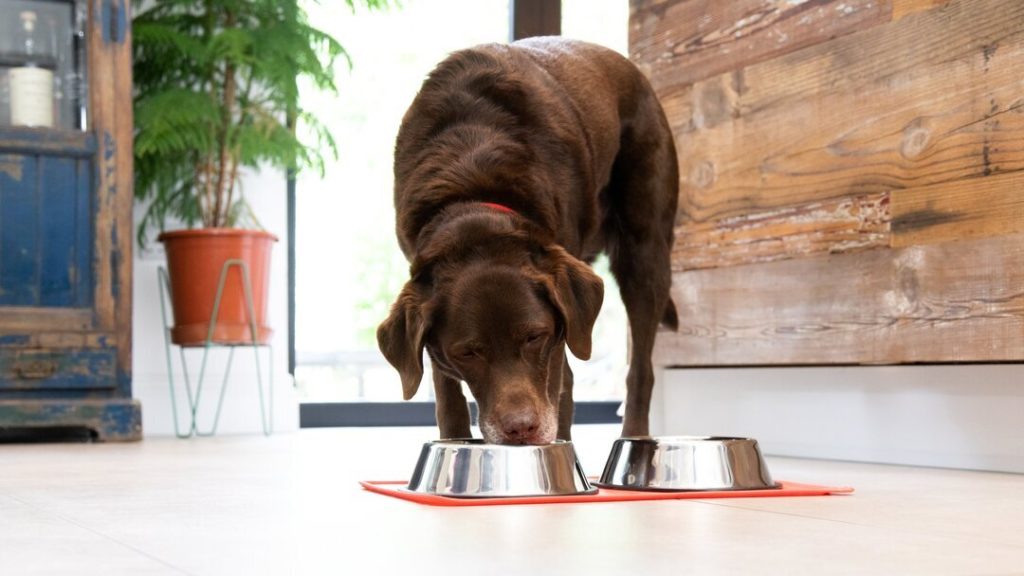
Photo by Colliefreund on Pixabay
When it comes to breeding your female dogs, proper nutrition plays a crucial role in ensuring the health and success of both the mother and her puppies. Adequate nutrition throughout the various stages of reproduction – heat (estrus), pregnancy, lactation, and weaning – is essential for conception, successful pregnancy, optimal litter size, and the overall well-being of the mother and her offspring. In this article, we will delve into the importance of nutrition during each stage of the reproductive process and provide practical tips for feeding your pregnant dog.
Importance of Nutrition for Successful Breeding
Good nutrition sets the foundation for successful breeding and pregnancy outcomes. Both underweight and overweight female dogs can face reproductive consequences, impacting their fertility and the health of their puppies. Obesity, in particular, is a common nutrition-related problem in reproducing dogs and can lead to various issues throughout the reproductive cycle.
Obesity can cause longer intervals between estrus cycles, reducing the overall reproductive capacity of the female dog. It can also result in smaller litter sizes due to decreased egg release during ovulation. Additionally, obesity increases the risk of dystocia (difficulty delivering puppies) and can negatively affect milk production during lactation, hampering puppy health and growth. Therefore, it is crucial to ensure that your dog is at a healthy weight before breeding.
Feeding During Pregnancy: Meeting the Nutritional Needs

During pregnancy, your dog will experience significant physiological changes, and her nutritional requirements will increase to support the growing puppies. A typical dog’s pregnancy lasts for approximately 62 days, and it is divided into trimesters. It is important to monitor your dog’s weight and body condition during this time to ensure she maintains an appropriate weight without becoming overweight or obese.
In the first two trimesters, your dog’s nutritional requirements are similar to those of a young adult dog. It is important to feed her a balanced diet that meets her energy needs to prevent weight loss or inadequate nutrient intake. Meal feeding is an effective way to control body condition and weight gain during pregnancy. This allows you to adjust the portion sizes based on your dog’s needs.
As your dog enters the third trimester, her puppies undergo rapid development, placing an increased burden on the mother’s body. During this time, her energy requirements may be 30-60% higher than her normal maintenance rations, depending on the size of the litter. However, the physical space in her abdomen becomes limited, making it challenging for her to consume large quantities of food. To address this, providing highly digestible, high-quality puppy/growth/development formulation in multiple small meals is recommended.
It is important to note that feeding a puppy food designed for large breed puppies is not suitable during pregnancy, as it may not have the correct calcium-phosphorus balance to support fetal bone development or healthy milk production in the mother. Consult your veterinarian regarding the supplementation of folic acid and essential fatty acids to support the developing fetuses.
Lactation: Providing Energy for Milk Production

Lactation is a highly energy-intensive phase for a mother dog. After giving birth, her energy requirements increase significantly to support milk production for her puppies. Approximately 3-5 weeks after whelping, her energy needs may be 2-4 times higher than that of a normal healthy adult dog. It is crucial to provide her with sufficient calories and nutrients during this period to ensure optimal milk production, weight maintenance, and overall body condition.
Feeding a highly digestible, high-quality puppy food during lactation is recommended. This type of food provides the necessary nutrients and energy density to sustain milk production. Free-choice feeding during the first 3-4 weeks of lactation, unless the mother has only one or two puppies, offers several advantages. It allows the mother to eat on her schedule, consume smaller amounts of food each time, and enables the puppies to start sampling solid food around the age of 3 weeks.
However, it is important to avoid free-choice feeding when the mother has only one or two puppies, as it can lead to excessive milk production, potentially resulting in mastitis (inflammation of the milk glands). Regular assessments of the mother’s body condition will help fine-tune her feeding regimen.
Weaning: Transitioning to Solid Food
As the puppies grow and reach the weaning stage, it is necessary to adjust the mother’s food intake to taper off milk production gradually. This will help make her more comfortable and prevent the puppies from relying solely on her milk. A gradual transition is important to ensure that her milk production decreases gradually, without causing discomfort or complications.
On the first day of weaning, withhold the mother’s food and allow the puppies to eat their food while they are away from her. They can still nurse a bit during this time. On the second day, separate the puppies from their mother and feed her approximately 25% of her pre-breeding portion and formulation. Over the next four or five days, gradually increase her food intake to reach her full pre-breeding portions. Restricting the mother’s food intake during this period will help her milk production decrease naturally.
Conclusion
Proper nutrition is vital for the reproductive success and overall health of your pregnant dog and her puppies. From pre-breeding to weaning, each stage of the reproductive process requires specific nutritional considerations to ensure optimal outcomes. Monitoring your dog’s weight and body condition, providing a balanced diet, and adjusting feeding regimens according to her needs are key factors in promoting a healthy and successful breeding experience. Consult with your veterinarian to develop a personalized nutrition plan that meets the unique needs of your dog and her puppies, setting the stage for the birth of healthy and thriving puppies.
